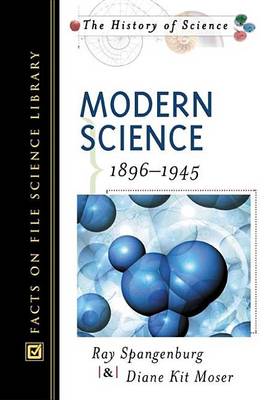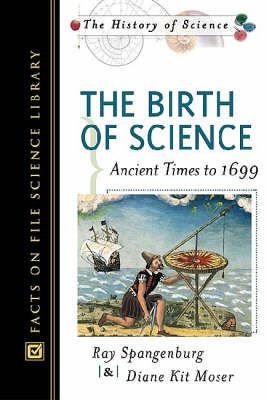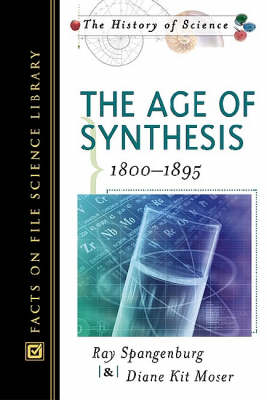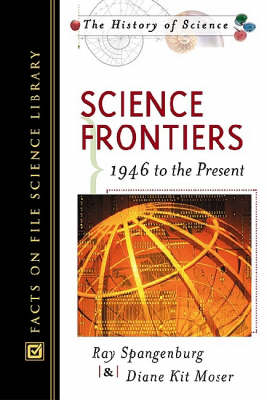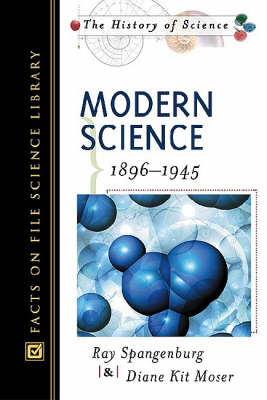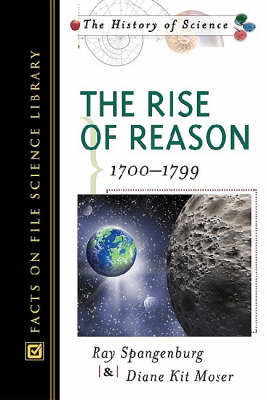History of Science
7 total works
Modern Science 1896-1945. Facts on File Science Library: The History of Science.
by Ray Spangenburg
Published 1 January 2004
Birth of Science, The: Ancient Times to 1699. History of Science Series.
by Ray Spangenburg and Diane Moser
Published 1 January 2004
Examining the scientific ideas developed by the early Greek philosophers, the developments of the Middle Ages and the Renaissance, and the momentous discoveries of the Scientific Revolution in the 17th century, this volume looks at the early years of scientific thought and discovery. Covering figures as well known as Aristotle and Newton, The Birth of Science: Ancient Times to 1699 also looks beyond the specific contributions of key individuals and offers a more inclusive, world view of the early days of science.
Addressing a period in the history of science marked by great change, this volume surveys the scientific achievements that brought the development of classical science to a close and set the stage for the breakthroughs of modern science in the 20th century. Covering such scientists as Faraday, Darwin, and Pasteur and advancements in chemistry, physics, and physiology, The Age of Synthesis: 1800-1895 offers an in-depth look at the tensions and controversies over science during this period, and how society was caught in the middle of many of the disputes.
Bringing the History of Science set's coverage into the 21st century, Science Frontiers: 1946-2001 discusses the most significant postwar scientific breakthroughs, the move toward increased specialization in all scientific branches, and the great use of computers in research. Looking carefully at the vast array of unsolved problems in science and the new questions that arise from each discovery, this insightful volume takes a comprehensive look at science during the second half of the 20th century and addresses the question, ""Where is science heading in the 21st century?
Examining the first half of the 20th century, this volume surveys the most significant scientific discoveries of an era that witnessed dramatic and unsettling changes in science. Articulating the development and impact of science from one century to the next, Modern Science: 1896-1945 deals with the significant work of scientists such as Bohr, Einstein, and Planck. It also looks at key discoveries in the physical and biological sciences and discusses the questions raised by two world wars about the humanity and the ethical use of the products of scientific discovery.
Exploring a period profoundly influenced by the Enlightenment and the Industrial Revolution, this title shows readers important discoveries that were made about gases, electricity, classification of living things, geology, and the universe. It covers scientists such as Cavendish, Avogadro, Franklin, Volta, and many others.
